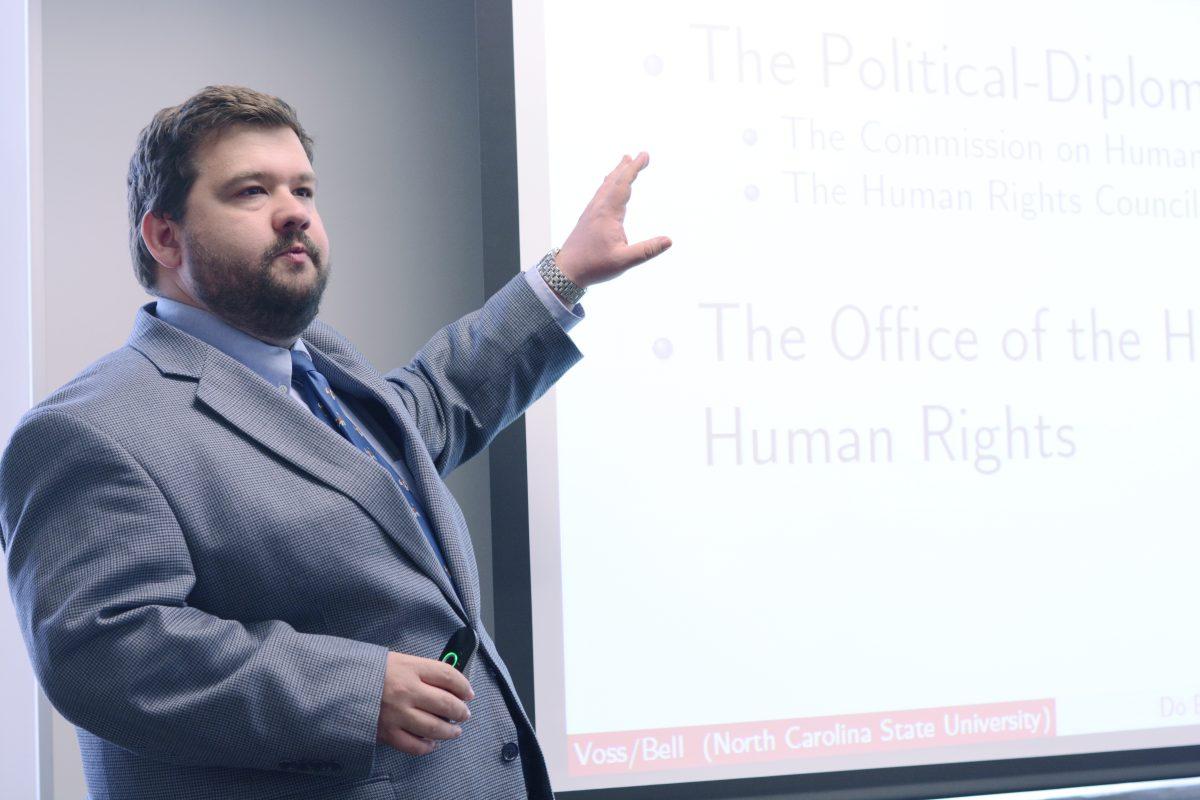
Joel Voss gave a presentation on the Human Rights Council Wednesday afternoon, which presented data about the trends between the states and the types of human rights issues they violated. Photo By Hunter Johnson
Citizens of established democracies must advocate their governments to enforce human rights in less established nations, according to Joel Voss, a postdoctoral teaching scholar in interdisciplinary studies.
Voss gave a lecture hosted by the College of Humanities and Social Sciences, Wednesday in the 1911 Building.
Voss spoke about his paper “Naming and Shaming Countries in the United Nations Human Rights Council: Do ‘Bad Apples’ Matter?” which he co-wrote with Amanda Bell, a graduate student in statistics and political science.
According to Voss, “Bad Apples” are states that participate in the United Nations Human Rights Council and criticize less established states for how they uphold human rights.
However, Voss said the leaders in the states that make the criticisms often fail to take meaningful action in the improvement of human rights.
Voss said the United Nations Human Rights Council decides which human rights treaties are created by voting on them.
“The human rights council is facing some of the same problems that the commission of human rights also faced, and ultimately what the problem is, is that it’s not a change in structure of how the institutions work,” Voss said. “What matters most if you’re going to protect human rights is changing preferences of states and not the structure of the system.”
Voss discussed his own findings on whether or not the “Bad Apples” in the United Nations Human Rights Council really matter. The hypothesis Voss developed from his research was to consider and compare the actions of established democracies to those of emerging democracies.
From his research, Voss concluded that “Bad Apples” do play a significant role in the Human Rights Council.
Voss also discussed the importance of the United Nations Human Rights Council by explaining its origin. The United Nations Human Rights Council used to be the United Nations Human Rights Commission from 1945-2005 until several problems arose. One of these problems was the politicizing of states.
“States start pointing fingers at each other,” Voss said.
Another problem that arose within the Commission was the selectivity of states against other states.
“Some states were picked on overwhelmingly more than other states,” Voss said.
Another problem was that the Commission only met once a year for three weeks. The United Nations Human Rights Council now meets three times a year for four weeks.
The United Nations Human Rights Council passes two types of resolutions: thematic resolutions and country resolutions. Thematic resolutions include access to water and freedom to identify one’s sexual orientation. A country resolution is one that is enacted when a state is unwilling to protect its citizens.
Voss explained the reasons why the public should care about the United Nations Human Rights Council and the importance of why “Bad Apples” in the system matter.